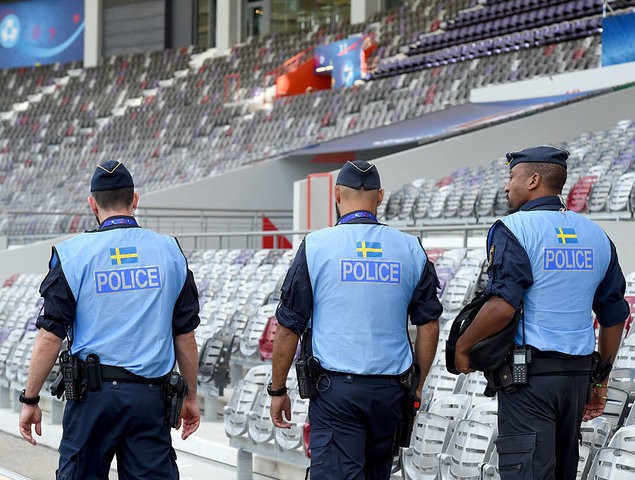Police in Sweden continue to lose control of more suburbs in major Swedish cities as they have now admitted that there are more than 55 no-go areas where they have major problems enforcing the law.
According to a new report, crime rates are rising sharply in the no-go areas with police unable to react to crimes. Cases of thefts, sexual assaults, and gang violence are rising and Sweden’s top police authority notes the significant increase of migration in the past year and the number of crimes committed have seen a parallel rise, reports Kronen Zeitung
The report even mentions the number of attacks on emergency services workers has gone up as well. Police spokesman Peter Larsson reiterated the news from earlier in the week that suggested some 80 per cent of the police in Sweden were seriously considering a new career due to the escalation of violence and fear for their own safety.
“We do not come to solve crimes, because we are called daily to so many incidents,” Larrsson told Swedish media Thursday. The number of officers quitting the Swedish police force has also gotten to the point where three officers per day on average quit. The police who stay on are subjected to rocks thrown at them and random attacks in some areas on a daily basis.
One case was highlighted to show how the police are having a tough time solving crimes. Earlier this year multiple cars were set on fire by organized migrant gangs in the multicultural border town of Malmo, sitting at the Danish frontier and the first place of arrival for thousands of newcomers who come to Sweden by foot, car, and train. Police say that although over 70 cars were burned over multiple days, they’ve only been able to catch one suspect.
Sweden has become so violent and unstable in these areas that even migrants from war-torn countries like Somalia are considering returning to their own countries. One migrant who fled Somalia 20 years ago said simply that Sweden was a “war zone.”
There have been many suggestions as to how to deal with the increase in crime and the no-go areas. Police have said that increased funding and better wages will attract more officers to the job but some have even more radical ideas.
Incoming World Bank economic chief Paul Romer has said the best way to accommodate migrants is to purposely leave them to their own area in which police would simply not operate. Romer suggested an area the size of Hong Kong for the migrants to be allowed to live under their own rules outside of Swedish society.

COMMENTS
Please let us know if you're having issues with commenting.